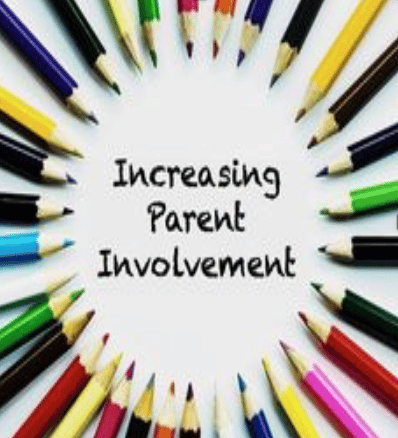Tips To Improve Parent Involvement In School Communities

Research shows the more parent involvement in school communities, test scores improve, incidents of violence decrease, and vulnerability to drug or alcohol abuse lessen. Parent involvement is the key to creating a sense of belonging. When parents feel that they’re participants in their children’s school programs, they don’t seek to achieve that sense of belonging in inappropriate ways.
The truth is that teachers and schools need parents very much. Parents are their children’s first teachers. A full, rich education is best achieved when the child and his family participate in the school’s programs. Parents will participate when they are welcomed and encouraged to do so. But schools must invite them to take part in meaningful ways, not just to do the tasks teachers hate.
It’s important to have fun together, too. Oftentimes, parent meetings and school events are neither fun nor well attended. Imagine a parent night at which all of the dads go up on stage and perform a rap song together while gyrating around in outlandish clothes. Visualize the glee of their sixth-grade children as they look on. If parent involvement in school community is low to nonexistent, figure out the reasons. Change what the school is offering, and the results will change, too.
Suggestions
- Ask each of your students to think of something unique and special about one or both of his parents (a job, a hobby, or the family heritage), and invite the parents to demonstrate skills or talk about culture and family history to the whole class.
- At class meeting time, elicit suggestions from the students on what the class could do to help parents feel welcomed and special at the school.
- If you are having tremendous difficulty involving a parent, make a phone call or pay a home visit. Going that extra mile usually has a big payoff.
- Brainstorm with other staff members about ways to involve parents.
- Plan fun activities for families. Involve the children in the planning, and their enthusiasm will infect others.
- Recognize that when you ask parents to become involved in your class, you need to take time for training. Parents sometimes need to be reminded of the particular responsibilities connected with a job. For example, when going on a field trip, perhaps the school requires that you go directly from the school to the destination, without any stops.
- You may need to set limits with some parents about their degree of involvement. With a parent who is overly involved, be sure to clarify guidelines for the job to be done. Point out the beginning, middle, and end of the task. Don’t hesitate to mention the needs of the entire class as opposed to the interests of a parent and his or her child.
Planning Ahead to Prevent Future Problems

- Have students write and publish a weekly or monthly newsletter for parents. Students can design regular columns. Newsletters find their way home when students have been involved in their preparation.
- Invite parents to visit the classroom at a variety of times and days of the week.
- Give parents their own place in the school building. This “parent support center” can be a room, or even a corner of a room, with a coffeepot, a few chairs, and a table. Her parents may visit together, work on materials needed for different classrooms (wouldn’t it be great to have extra hands to cut out shapes for your students’ collages?), and plan future events.
- During the first week of the school year, mail a letter to each parent in which you share your curriculum plans, and provide a list of ways in which he or she might join in activities. Include some tasks that parents can do at home if their work schedules or physical limitations preclude coming to the school.
- Whenever a parent helps or participates, take time to send them a written thank-you or some recognition of their service. Better yet, allow students to be in charge of drafting these. Be as specific as possible about how a parent’s actions benefited you, the students, and/or the school.
- Examine your feelings and beliefs about parent involvement in school. Do you really want it? Are you willing to look for and then accept what each parent is able to offer? When parents show up in your class uninvited, do they sense that you consider their presence a burden or a nuisance? Unannounced visits maybe all the involvement some parents can offer. See such visits as opportunities, and make the most of them by having a special place in your room (perhaps an honored parent chair) to make the parent feel welcome. If unscheduled visits are a problem for you, speak with the parent and decide what will work best for both of you.
